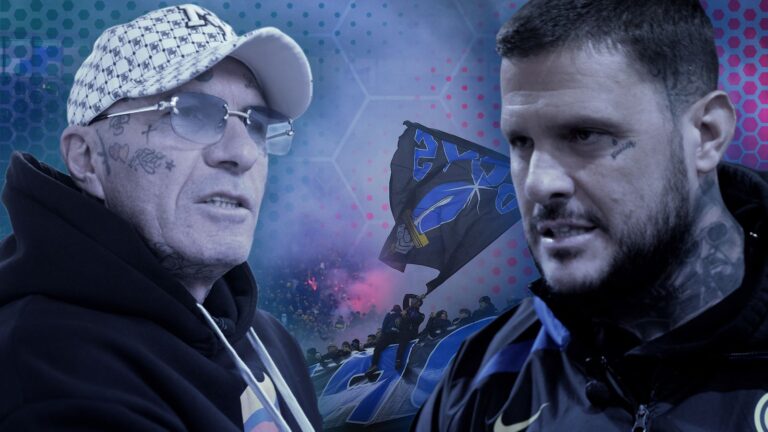donnie the ultra
At a backstreet bar near the police station, Donnie is overcome with emotion as he talks about his life as an ultra.
“It's like going to war. It's awesome,” he says.
“There will be consequences, but that's normal. You are responsible for your actions.”
Donnie says becoming an ultra is 'like going to war'
Donnie says becoming an ultra is 'like going to war'
“I like to fight, so I'm always on the front line. The adrenaline rushes. You can't hide it,” he says.
He received his first suspension after a series of clashes at AS Roma. He followed that rule for one game, then continued to push toward the ground game after game for a year.
But one day he was inevitably stopped and his past caught up with him.
His latest ban is even more onerous, requiring him to sign in at a police station immediately before a game and again after the game.
Donny faces a new trial and is expected to be banned from all stadiums for a further five years. “But let me tell you, I never regret what I did,” he says. “Everything I did I would do all over again.”
“We are people who have lived a difficult life on the streets.”
Marco acknowledges that many ultras (who often come from poor families) have committed crimes, but denies any link to organized crime.
“There are people with criminal backgrounds, but most of them are not organized criminals,” he says.
“We are people who have lived a difficult life on the streets and that has led us to make mistakes throughout our lives.
“As far as my Curva is concerned, I will never be associated with organized crime.”
But Inspector Carmine Massarelli says there are “definitely similarities” between ultra groups and organized crime.
“There tends to be a direct line of demarcation between ultras, who serve criminal organizations and therefore have the ability to extend power across their territory through all sorts of illegal activities such as drugs and extortion. ” he added.
“This is because ultras fans essentially control territory through acts of violence.”

